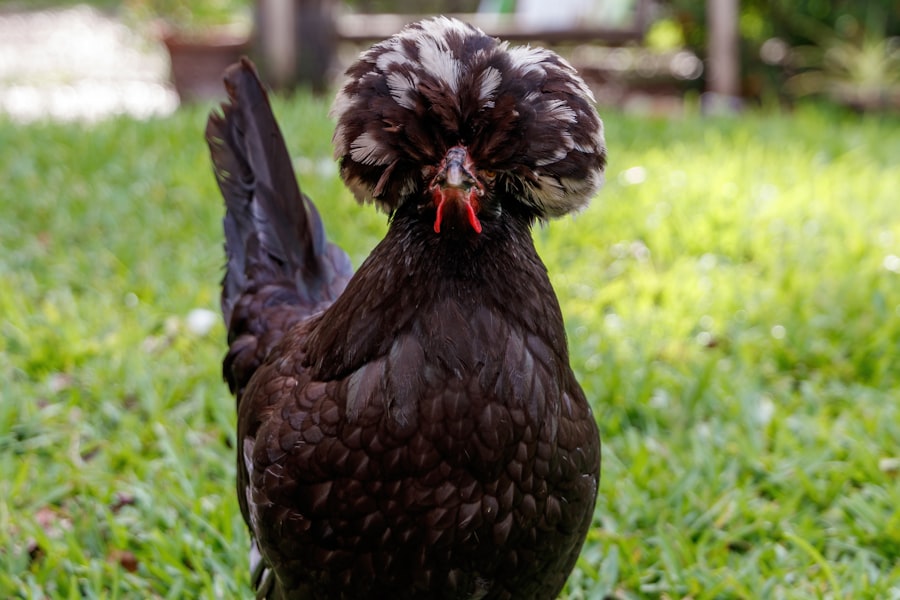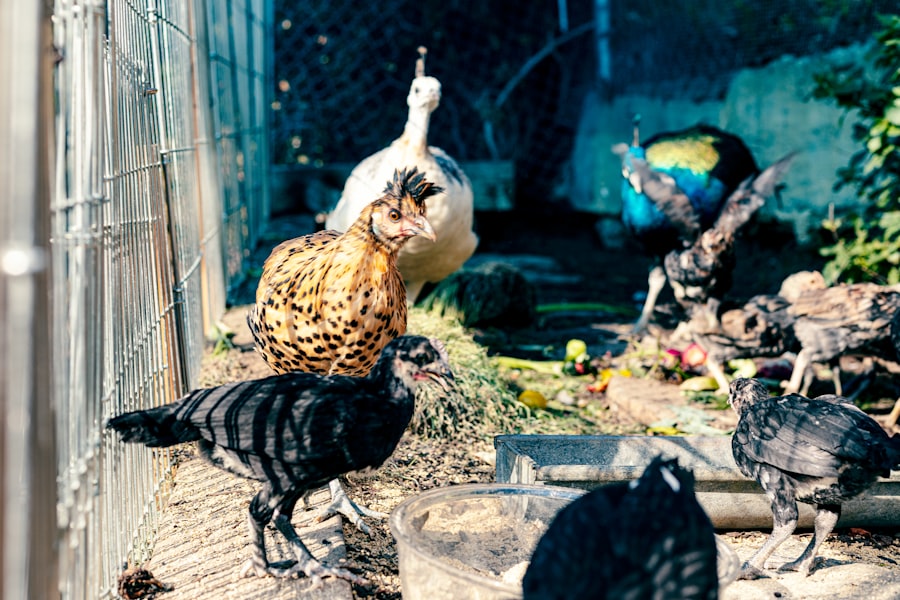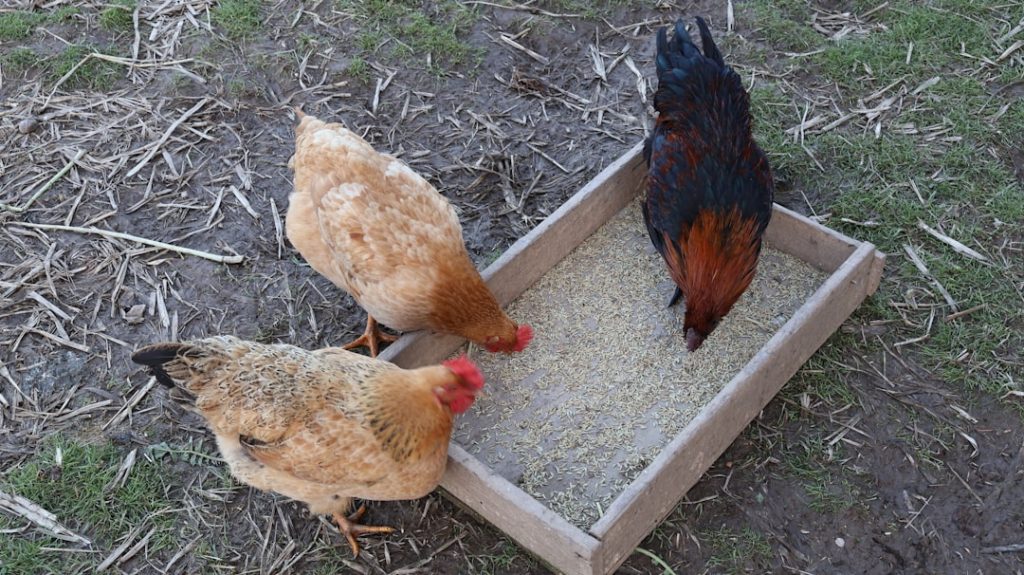Chicken keeping in New Orleans has gained popularity in recent years, aligning with trends in urban farming and sustainable living. The city’s climate and cultural background provide favorable conditions for raising chickens. Residents are increasingly interested in keeping chickens for various purposes, including fresh egg production, companionship, and natural pest control in gardens.
Before starting a chicken-keeping endeavor in New Orleans, several factors require consideration. These include understanding local regulations, zoning laws, and permit requirements. Additionally, health and safety considerations are crucial when maintaining a flock within city limits.
Raising chickens offers multiple benefits. It provides a sustainable source of fresh eggs, natural pest control, and organic fertilizer for gardens. Many individuals find chicken keeping to be a therapeutic and educational hobby.
However, it is essential to balance these benefits with responsible practices that adhere to city regulations and maintain good relationships with neighbors. Proper research and preparation are key to successful chicken keeping in New Orleans. This includes learning about chicken care, coop design, and management practices suitable for urban environments.
By understanding and following local guidelines, chicken keepers can enjoy the rewards of this activity while ensuring compliance with city standards.
Table of Contents
- 1 Local Regulations and Zoning Laws
- 2 Permits and Licensing Requirements
- 3 Health and Safety Considerations
- 4 Noise and Odor Concerns
- 5 Benefits of Keeping Chickens
- 6 Resources for New Orleans Residents interested in Keeping Chickens
- 7 FAQs
- 7.1 What are the regulations for keeping chickens in New Orleans?
- 7.2 How many chickens are allowed per property in New Orleans?
- 7.3 What are the coop requirements for keeping chickens in New Orleans?
- 7.4 Are there any restrictions on selling eggs from backyard chickens in New Orleans?
- 7.5 Are there any specific zoning requirements for keeping chickens in New Orleans?
Key Takeaways
- Keeping chickens in New Orleans is a popular and rewarding hobby for many residents.
- Local regulations and zoning laws in New Orleans dictate the number of chickens allowed and coop placement.
- Permits and licensing are required for keeping chickens in New Orleans, with specific guidelines for coop construction and maintenance.
- Health and safety considerations include proper sanitation, disease prevention, and predator protection for the chickens.
- Noise and odor concerns should be addressed by keeping the coop clean and well-maintained.
- Benefits of keeping chickens in New Orleans include fresh eggs, natural pest control, and a connection to sustainable living.
- Resources for New Orleans residents interested in keeping chickens include local poultry associations, online forums, and workshops on chicken care and maintenance.
Local Regulations and Zoning Laws
Understanding City Ordinances
The city has specific ordinances in place that dictate the number of chickens allowed per property, as well as guidelines for coop placement and maintenance. For example, in residential areas, the city typically allows up to six hens per property, but roosters are often prohibited due to noise concerns.
Coop Placement and Maintenance
Coops must be located a certain distance from neighboring properties and maintained in a clean and sanitary condition. It’s also important to consider any homeowners’ association rules or neighborhood covenants that may impact your ability to keep chickens.
Avoiding Potential Issues
By understanding the local regulations and zoning laws, you can avoid potential fines or legal issues and create a positive relationship with your neighbors and community.
Permits and Licensing Requirements

In addition to understanding the local regulations and zoning laws, it’s important to be aware of any permits and licensing requirements for keeping chickens in New Orleans. While the city does not typically require a specific permit for keeping chickens, there may be other considerations to keep in mind. For example, if you plan to sell eggs or other poultry products, you may need to obtain a business license or comply with certain health and safety regulations.
It’s also important to consider any potential inspections or approvals that may be required before starting your chicken-keeping venture. Some neighborhoods or homeowners’ associations may have specific requirements for coop construction or placement, so it’s essential to communicate with the appropriate authorities and ensure that you are meeting all necessary standards. By taking the time to understand any permits and licensing requirements, you can ensure that your chicken-keeping activities are legal and compliant with city regulations.
Health and Safety Considerations
When keeping chickens in New Orleans, it’s important to prioritize the health and safety of your flock. Proper care and maintenance of your chickens can help prevent the spread of disease and ensure that your birds are happy and healthy. This includes providing a clean and secure coop, regular access to fresh water and nutritious feed, and appropriate veterinary care when needed.
Additionally, it’s important to be mindful of potential health risks associated with raising chickens, such as salmonella contamination. Practicing good hygiene when handling chickens and their eggs can help reduce the risk of illness for both you and your family. By staying informed about best practices for chicken care and health, you can create a safe and enjoyable environment for your feathered friends.
In terms of safety, it’s important to consider potential predators that may pose a threat to your chickens. This can include neighborhood dogs, raccoons, or even birds of prey. Ensuring that your coop is secure and predator-proof can help protect your flock from harm.
By taking proactive measures to prioritize the health and safety of your chickens, you can enjoy the many benefits of chicken keeping while minimizing potential risks.
Noise and Odor Concerns
One common concern associated with keeping chickens in urban areas is the potential for noise and odor issues. While hens are generally quieter than roosters, they can still produce some level of noise, particularly when laying eggs or communicating with one another. Additionally, chicken coops have the potential to create odors if not properly maintained.
It’s important to be mindful of these factors and take steps to minimize any potential disturbances to your neighbors. To address noise concerns, consider locating your coop in an area of your property that is less likely to disturb neighboring homes. Additionally, providing enrichment activities for your chickens can help reduce boredom and excessive vocalization.
When it comes to odor control, regular cleaning of the coop and proper waste management can help minimize any unpleasant smells. Using absorbent bedding materials and regularly removing soiled bedding can also contribute to a cleaner and more odor-free environment for both your chickens and your neighbors. By being proactive about addressing noise and odor concerns, you can demonstrate consideration for your neighbors while enjoying the many benefits of keeping chickens in New Orleans.
Benefits of Keeping Chickens

Fresh Eggs and Self-Sufficiency
One of the most significant advantages of keeping chickens in New Orleans is the availability of fresh eggs right in your own backyard. Not only are homegrown eggs delicious and nutritious, but they also provide a sense of self-sufficiency and sustainability.
Natural Pest Control and Fertilizer
In addition to fresh eggs, chickens offer natural pest control for gardens by consuming insects and other unwanted pests. Their waste also serves as a valuable source of fertilizer for plants, contributing to a healthier garden environment.
Therapeutic Benefits and Educational Opportunities
Furthermore, many people find that caring for chickens can be a therapeutic and rewarding experience, providing an opportunity to connect with nature and engage in a fulfilling hobby. Beyond the practical benefits, keeping chickens can also be a valuable educational experience for children and adults alike. Learning about animal care, biology, and sustainable living practices through chicken keeping can foster a greater appreciation for the natural world and promote environmental stewardship.
A Range of Rewards for Individuals and Communities
Overall, the benefits of keeping chickens in New Orleans extend far beyond just fresh eggs, offering a range of rewards for both individuals and communities.
Resources for New Orleans Residents interested in Keeping Chickens
For New Orleans residents interested in keeping chickens, there are numerous resources available to support you in your chicken-keeping journey. Local organizations such as urban farming groups or agricultural extension offices may offer workshops or educational materials on chicken care and management. These resources can provide valuable information on best practices for coop construction, feeding and nutrition, health care, and more.
Additionally, online forums and social media groups can connect you with other chicken keepers in the area, allowing you to share experiences, ask questions, and seek advice from fellow enthusiasts. Building a network of support within the local chicken-keeping community can be invaluable as you navigate the various aspects of raising chickens in an urban environment. Finally, don’t hesitate to reach out to city officials or local animal control agencies for guidance on specific regulations or zoning laws related to chicken keeping in New Orleans.
By staying informed and connected with relevant resources, you can set yourself up for success as you embark on your chicken-keeping adventure in the Big Easy. In conclusion, keeping chickens in New Orleans offers a range of benefits for individuals and communities alike, from fresh eggs to sustainable living practices. By understanding local regulations, zoning laws, permits, health considerations, noise concerns, and available resources, you can ensure that your chicken-keeping experience is both enjoyable and compliant with city regulations.
With proper care and attention, raising a flock of hens can be a rewarding and enriching endeavor that contributes to a more sustainable and connected way of life in New Orleans.
If you’re considering keeping chickens in New Orleans, you may also be interested in learning about the best farmhouse chicken coop designs. Check out this article for tips on creating a comfortable and functional coop for your feathered friends.
FAQs
What are the regulations for keeping chickens in New Orleans?
In New Orleans, residents are allowed to keep chickens on their property as long as they adhere to certain regulations set by the city. These regulations include the number of chickens allowed, coop requirements, and distance from neighboring properties.
How many chickens are allowed per property in New Orleans?
In New Orleans, residents are allowed to keep up to 6 chickens on their property. Roosters are not allowed within city limits.
What are the coop requirements for keeping chickens in New Orleans?
The city of New Orleans requires that chicken coops be at least 40 feet from any neighboring residence and 15 feet from any property line. Coops must also be kept clean and free from odors.
Are there any restrictions on selling eggs from backyard chickens in New Orleans?
Residents of New Orleans are allowed to sell eggs from their backyard chickens as long as they comply with local food safety regulations and obtain any necessary permits.
Are there any specific zoning requirements for keeping chickens in New Orleans?
In New Orleans, keeping chickens is allowed in residential areas as long as residents adhere to the city’s regulations for keeping chickens. However, it’s important to check with the local zoning regulations to ensure compliance.
Meet Walter, the feathered-friend fanatic of Florida! Nestled in the sunshine state, Walter struts through life with his feathered companions, clucking his way to happiness. With a coop that’s fancier than a five-star hotel, he’s the Don Juan of the chicken world. When he’s not teaching his hens to do the cha-cha, you’ll find him in a heated debate with his prized rooster, Sir Clucks-a-Lot. Walter’s poultry passion is no yolk; he’s the sunny-side-up guy you never knew you needed in your flock of friends!







